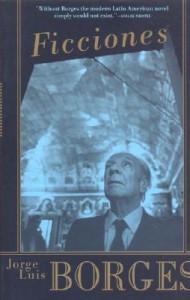 Literary Mind Games
Literary Mind Games
Borges, Jorge Luis (1962). Ficciones. New York: Grove.This collection of seventeen stories in English is a good introduction to the involuted mind of Borges. The stories revel in paradox and self-reference; they dwell on infinities and recursions, mirrors and labyrinths, numbers and letters, and above all they are subtle in erudition and humor.
These aren’t traditional stories, but more like “tales,” in the style of Poe, where a narrator describes events from memory. A
mise en scene is rare, as is dialog. A typical story might involve, for example, a scholarly discourse on a non-existent book, the point of which is to provide subtle satire of scholarly discourse.One of the best-known of the stories is “The Library of Babel,” which imagines constructing, from the 26 letters of the alphabet, sequences of various lengths in every possible order, thus creating every possible word. That’s a large, though not infinite, number of words. Many combinations make no sense, such as “MCV,” but plenty of others have meaning in some language.All these words are then arranged in every possible combination, to create all possible sentences, which are then arranged in sequences to form every possible book that has been, will be, orcould ever be, written. The resultant library is so large that nobody has ever found its edges, but logically, it is known to contain all written human knowledge.
Borges was a librarian for many years, and must have wondered, as I have, “How many books can there be?” A linguistically-trained person will find errors in the fantasy, but the exercise is for delight and humor. Borges’ playfulness with language recalls Nabokov, and his detailed faux-scholarship recalls Nicholson Baker in Mezzanine, and David Foster Wallace.
The stories are similar in form, style, mood, and tone, and they all involve mind-games, so they do become tedious, although what book of stories by a single author doesn’t? There are no well-developed characters and there is no serious human drama, so the stories appeal to cerebral fantasists, not dramatists or sentimentalists. As a literary original however, Borges is not to be missed.

